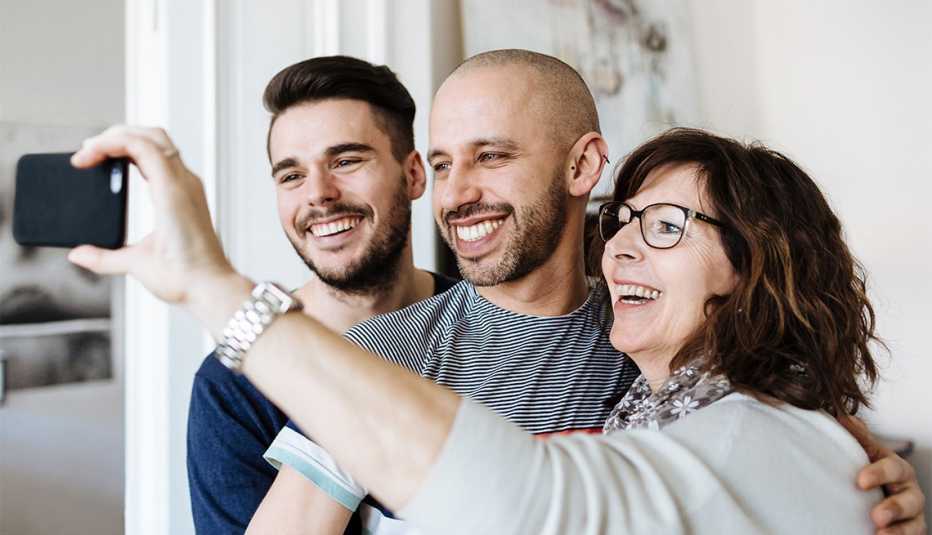Staying Fit


For many years, everyone close to Shannon McElroy knew that she was a lesbian — except maybe her parents. It was only after McElroy married very quietly last January that she decided to tell her parents, who are religious. "A lot of it was fear about how they would react and if they would fully accept me," says McElroy, 36, a program manager at a York, Pa., community health center. "But they were great, saying, 'We know.' They welcomed my wife into the family."
Even with social changes such as the Marriage Equality Act and greater acceptance of gay rights, coming out is still a traumatic event for some people, says McElroy, who works with gay youths at the health center. A Pew survey found that about 40 percent of LGBT adults were rejected by a family member or close friend because of their sexual orientation or gender identity.


AARP Membership— $12 for your first year when you sign up for Automatic Renewal
Get instant access to members-only products and hundreds of discounts, a free second membership, and a subscription to AARP the Magazine.
Another Pew study found that almost 60 percent of parents would not be upset if their child came out. Still, parents are often the last to learn the sexual orientation of LGBT children.
"Parents are the hardest to tell because children are afraid of disappointing them or adding stress to their lives or upsetting expectations," says Jean Hodges, president of PFLAG, a support organization for parents with 400 chapters nationwide.
But many gay advocates suggest that even if parents are accepting, they should never ask point-blank about sexual orientation. That's what triggered Kristin Russo's announcement that she was bisexual at a Thanksgiving dinner. In college at the time, she "couldn't stand the questions anymore" from her mother about her dating life. What followed was a decade of strained relations between Russo and her mom. It was only when her mother started meeting Russo's girlfriends that she began fully accepting her daughter's identity.

































































More on Home and Family
Retire to Margaritaville
Coming soon: Jimmy Buffett-inspired adult ’hoods
10 Great Places to Live on Under $40K per year
We found great spots where you can live the good life for less18 May-December Celebrity Marriages
These couples are making it work (so far) with an age gap of more than 20 years